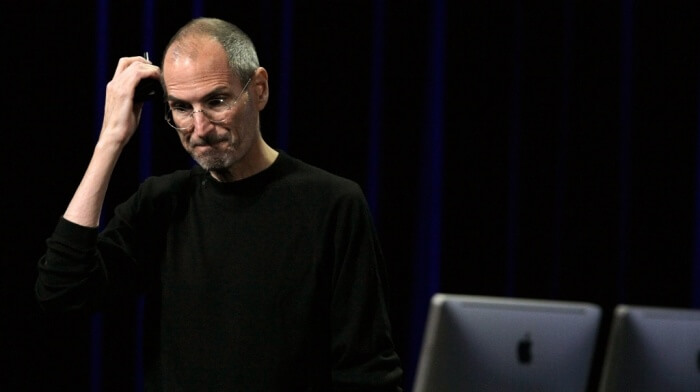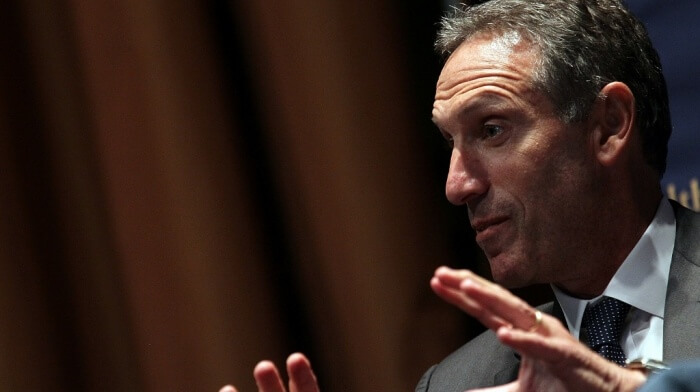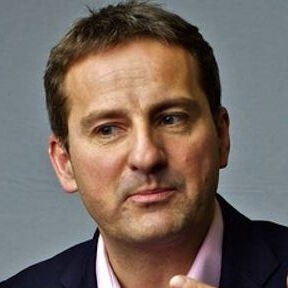Deputy chairman of the Centre for Entrepreneurs
View Author ProfileOutsiders and misfits have the wrong traits for the formal economy, but they often make excellent entrepreneurs. Here Robert Kelsey, author of a book on the subject, explains why.
Opinions
Why Outsiders Make The Best Entrepreneurs
Outsiders and misfits have the wrong traits for the formal economy, but they often make excellent entrepreneurs. Here Robert Kelsey, author of a book on the subject, explains why.

First let’s nail what an outsider is. We’re those within a tribe but not of it. Uncomfortable in our own skin, we’re socially awkward – loners in the crowd or even the changelings within our own family. For whatever reason, we simply don’t fit in: we’re the unclubbables, the misfits – the ones rejected by or rejecting the colony.
At first glance, such an outlook seems unconducive for success. In fact, it looks like a disaster, not least because traits can include problems with authority, distorted empathy (in which we root for the bad guys), sensitivity, cynicism, anger and even imposter syndrome (in which we assume ourselves incapable of the role we hold).
Even at second glance, such traits are a struggle for anyone trying to navigate their way in the formal economy. Major employers are all hierarchies: something outsiders – as individualists – instinctively dislike. Too often the result for outsiders is failure, which compounds their sense of isolation and alienation.
"Unleashed, outsiders can change the world"
We develop a gnawing sense of marginalisation: of somehow missing out on the party everyone else is invited to. Extremism can follow, even criminality. And yet the very traits that make outsiders so incapable of success within normal educational and occupational structures is exactly what’s required for entrepreneurship.
Unleashed, outsiders can change the world – as outsider entrepreneurs such as Steve Jobs, Mark Zuckerberg, Howard Schultz, Oprah Winfrey and James Dyson have shown. Indeed, those traits can be turned around and presented as the very things entrepreneurs need for success:
Innovation. It’s a cliché that entrepreneurs are all innovators – many simply want to work for themselves. But it tends to be true that it’s the innovators that strike it big. They have a thirst for doing things differently, for taking concepts to the next stage.
Contrarian. Such innovation, for entrepreneurs, is often the result of a stubborn bloody-mindedness that sets them against the crowd. While most people are happy to coalesce in groupthink – and allow it to dictate their entire lives – outsiders tend to do the opposite (hence the distorted empathy). And if there’s one defining trait for a successful entrepreneur, it’s that they instinctively swim against the tide.
Creativity. Outsiders tend to be highly creative (a cause and effect of their childhood isolation), which is, of course, a major requirement for entrepreneurship – in fact, another defining characteristic. Certainly, creativity can help entrepreneurial offerings stand out from the crowd.
Individualism. If outsiders are any one thing, they are individualists. Sure, many become revolutionaries railing against what they see as a venal and exploitative economic system. But just as many see free enterprise as the very structure that liberates them from the need to conform. They simply need to find a way of making their individualism profitable.
Courage. As with successful entrepreneurs, successful outsiders possess bravery in buckets. Sure, it can come across as bravado – even recklessness – but it’s actually a willingness to take risks: a valour born from the frustrations of their tribal positioning. Indeed, if there’s a defining characteristic between successful outsiders and those that remain alienated and frustrated – its pure guts.
Not all good news. Such a close alignment between the outsider and the entrepreneur offers enormous hope to the not-insignificant proportion of the population leaving full-time education thinking that they don’t belong: usually because that’s what our overly-structured and linear education system has taught them.
Yet it’s not all good news. The very traits that make outsiders suitable entrepreneurs, can lend themselves to problems further down the line.
For instance, outsiders tend to make poor managers. While able to forge their own path through creativity, determination and bravery, outsiders are essentially selfish people, which makes most successful outsiders egotists. The needs of their team are rarely considered, which – over time – can hinder their growth.
So entrepreneurial outsiders need to develop managerial skills, or quickly employ someone with the sense of community, empathy and nurturing they lack.
Potentially more detrimental, however, is the outsider’s poor judgement. Our youthful alienation has rendered us incapable of making strong decisions based on meeting positive and planned future objectives.
Instead, we tend towards emotional decision-making focused on our immediate, usually negative, needs – often to do with avoiding triggered fears or insecurities. Of course, much of the advice here concerns removing our emotions when making decisions, which – for outsiders – is impossible. Better to include it, but only as an equal to more positive evaluations.
And the final flaw for outsider entrepreneurs is a propensity towards sociopathy. According to Martha Stout, author of The Sociopath Next Door (2005), sociopaths have “no feelings of guilt or remorse no matter what you do, no limiting sense of concern for the well-being of strangers, friends, or even family members”.
Sociopaths are pathological liars and manipulators. They can be charming and even appear as empathetic team players, when they are anything but. Yet the real problem for entrepreneurial outsiders is not that sociopathic tendencies result in failure – on the contrary they can lead to spectacular success.
It’s that they have no limits: eventually, the sociopath – admittedly after a period of seemingly-stupendous achievement – will overreach themselves.
Of course, when the inevitable crash comes, their numerous enemies will be happy to put the boot in. That said, constructive sociopathy can work wonders. Here, entrepreneurial outsiders set positive and constructive goals (“getting rich” being a negative goal based on overcoming our insecurities) that help entrepreneurs make better decisions that build better companies.
And, no, that doesn’t mean we’ll end up as insiders.
Robert Kelsey is author of The Outside Edge, How Outsiders Can Succeed in a World Made by Insiders, published by Capstone. He is also deputy chairman of the Centre for Entrepreneurs.
Most read in Opinions
Trending articles on Opinions
Top articles on Minutehack
Thanks for signing up to Minutehack alerts.
Brilliant editorials heading your way soon.
Okay, Thanks!




